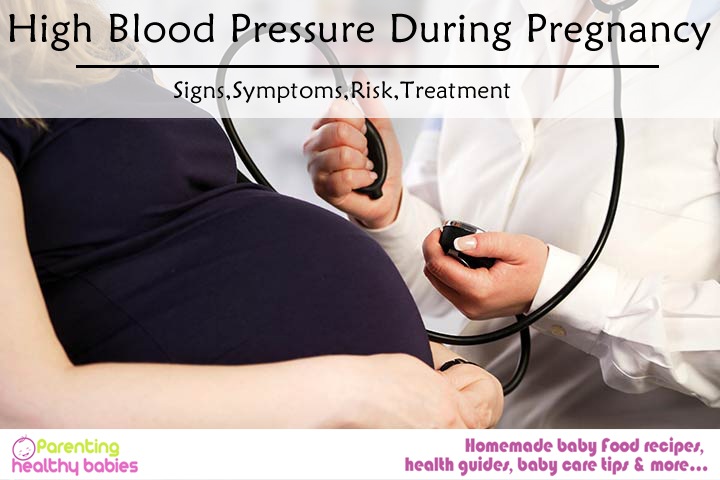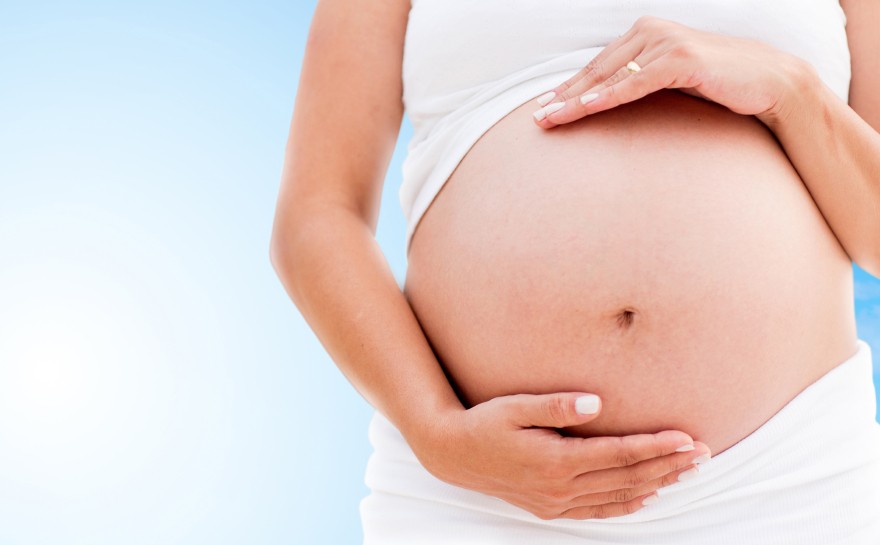High blood pressure occurs when the blood pressure is more than 140/90 mm Hg. While many people suffer from high BP, pregnant ladies have more to worry about. Though, it is not always a dangerous phenomenon, but having high blood pressure, can often lead to severe complications and repercussions for mother and baby.
What are the signs and symptoms of High Blood Pressure?
High blood pressure during pregnancy is also termed as Preeclampsia, which is further characterized by high level of protein in the urine and swelling in hands and feet.
Preeclampsia can either be mild or severe, depending upon the severity of the problem. Given below are some of the symptoms that might be present during pregnancies:
- Water Retention in the body
- Protein in urine
- Head aches
- Vision problems
- Fatigue and unexplainable tiredness
- Vomiting
- Small amounts of urinating frequently
- Pain in upper abdomen
- Short breath
- Tendency for getting bruised easily.
In case, one feels any of these symptoms, they should contact the doctor immediately.
Causes of High BP during pregnancies:
As per NHLBI, there are various probable causes for higher blood pressure during pregnancies. These are:
- Obesity or being overweight
- Lethargy and laziness
- Smoking
- Alcohol consumption
- First pregnancy
- Family history of hypertension during pregnancies
- Age of the mother above 40 years
- Expecting more than 1 child
- Assisted technology, like IVF, etc.
- Women, suffering from high blood pressure before becoming pregnant, are more likely to develop complications during their pregnancy.
Risk Factors associated with High BP during pregnancies
Following unhealthy lifestyle might cause high blood pressure issues during pregnancy. Also, women, who are expecting their first child are more susceptible to have a higher pressure. In the subsequent pregnancies, the risk of developing high pressure goes down.
Types of high blood pressure conditions during pregnancy
High Blood Pressure Conditions
The hypertension during pregnancy can be broadly classified under the following heads:
Chronic Hyper-tension
This is a condition, which is normally associated with women, who suffer from high blood pressure, even before she becomes pregnant. This can be treated with suitable blood pressure medicines. As per the doctors, hypertension also occurs during the initial 20 weeks of gestation.
Gestational Hyper-tension
This problem develops once the pregnancy exceeds the 20th week mark. This mostly gets resolved soon after pregnancy, but it leads to complication, such as induced labour. If it is diagnosed before the 30 weeks, there is a likelihood of it progressing to preeclampsia.
Chronic Hyper-tension along with overlaid Preeclampsia
This is a condition when the women suffers from hypertension before pregnancy, and then, also faces problems with having protein in urine, and other additional complications during pregnancy.
How to track Blood Pressure?
The reading of blood pressure is done in a fraction – The systolic BP over the diastolic BP. The top number is the systolic pressure, and it measures the pressure on the heart’s arteries during the heart beats, or when the blood is squeezed forward in the body. The diastolic pressure is the denominator, and it measures the force of the blood pressure in the heart during rest.
What is the normal range of pressure during pregnancy?
The normal pressure is around 120/80 mm Hg. And, any pressure that is higher than 140/90, is considered to be high. Also, the pressure is usually tested during every visit. And, if the top number increases by more than 15 degrees, then the pressure is considered to be high, and is a cause for concern.
Why does the blood pressure vary during pregnancy?
During pregnancy, the women might see a change in her blood pressure. The reasons for these changes could be any of the following:
- Increase in the quantity of blood in the body of a pregnant woman: During pregnancy, the amount of blood in the woman’s body increases by almost 45 %. So, this much extra blood will be required to be pumped by the heart.
- Left ventricle of the heart becomes larger and thicker: The left portion of the heart, which does the maximum pumping, becomes thick and large, as it has to work hard for supporting the increase in the volume of blood.
In majority of the cases, the high BP issues during gestation, subsides soon after the delivery.
How to track blood pressure during pregnancies?
There are various ways by which one can track the blood pressure. Given below are some of the methods:
Buy a BP monitor, which can be used on the upper arm or wrists. This will be useful to monitor and track blood pressure at home, any time during the day, without having to visit the doctor.
Visit pharmacies or chemist shops, which has a machine for taking the blood pressure readings.
Take blood pressure reading at the same time each day, so that the readings are more accurate. And, while taking it, one should try to remain seated with the legs remaining uncrossed. Also, the same arm should be used every time.
If the blood pressure readings are high repeatedly, then, the doctor should be consulted immediately.
Complications:
If the blood pressure doesn’t get controlled even after 20 weeks of pregnancy, then, it could lead to complications, such as Pre-eclampsia. In Pre-eclampsia, one would see serious damages to the organs, such as kidneys and brain. This condition is also known by the name of Toxemia, or hypertension that is induced by pregnancy. And, if the condition also includes seizures, it turns into eclampsia. The other complications could include renal failure, liver problems or cardio issues.
If the woman faces continuous blood pressure spike during her pregnancy, then, it would have an impact on the growth of the baby, leading to lower birth weight of the child. Some of the other complications might include:
Placental abruption, where the placenta gets separated from uterus before time. When there is a severe abruption, it can lead to damages to placenta and heavy bleeding, and that can become life-threatening for the baby and the mother.
Preterm delivery, or a delivery, which happens before 38 weeks are over. This could be done so that further complications could be avoided.
C-Section delivery. This might be required to reduce the emotional stress to the mother and child.
The placenta might not get enough blood, and the baby would get less food and oxygen, due to that. This could also lead to lower birth weight of the baby, and also cause breathing problems for the child.
Future cardio diseases. Having high blood pressure will increase the risk of cardio diseases. To avoid getting cardio problems, one should try and maintain their ideal weight, and should eat a good balance of veggies and fruits, and should also do some moderate exercises.
Prevention of High BP
Some of the ways to avoid high blood pressure include a controlled diet and exercises.
- During pregnancy, one cannot stop oneself from gaining weight. But, a dietician will help in charting out a diet plan, which will consist of a balanced diet, and will depend upon the body structure. This would vary from person to person.
- Also, one should refrain from smoking and consumption of alcohol, which leads to spikes in blood pressure.
- Reducing stress through meditation and yoga can also help in controlling blood pressure.
Treatment for High BP
During pregnancies, one should avoid taking any of these medicines – ACE inhibitors, angiotensin receptor blockers and renin inhibitors. Though these medicines are useful for bringing the blood pressure down, it actually gets passed to the developing foetus through the flow of blood, and will impact the growth of the child. These medicines can also cause thinning of the blood, which might lead to pre-term babies.
Some of the safe medicines include Labetalol and Methyldopa, which can effectively manage the blood pressure.
The treatment for high blood pressure usually depends upon how close the mother is from the due date. Closer to the due date would mean that the baby has developed sufficiently, and the doctor would want the baby to be delivered soon. And, if the baby has not yet developed completely, then the doctor might suggest the following treatments:
- Taking complete bed rest. Lying down on the left side will help in taking the baby’s weight from the major blood vessels.
- Increase in the pre-natal check-ups.
- Less consumption of salt
- Drinking 8 glasses water each day
- Eat less of fried and junk food.
- Eat a protein-rich diet
- Regular exercise
- Keeping the feet elevated during the day
- Avoiding consumption of alcohol and beverages that contain caffeine.
- Taking blood pressure medicines and supplements. But, that should be taken only after consultation with your doctor, who would suggest only the safest medicines, at appropriate doses.
It is imperative that the pregnant woman is aware of all the risk factors, which would affect her and her baby, and should keep herself healthy and fit. Taking preventing measures will help her in keeping the blood pressure in check. A healthy blood pressure would mean having a healthy child. Let the heart beat be normal so that the child has a healthy future. And, in case of unusual spikes in the pressure, one should consult the doctor immediately.
References
http://www.healthline.com/health/high-blood-pressure-hypertension/during-pregnancy#overview1
http://www.mayoclinic.org/healthy-lifestyle/pregnancy-week-by-week/in-depth/pregnancy/art-20046098













